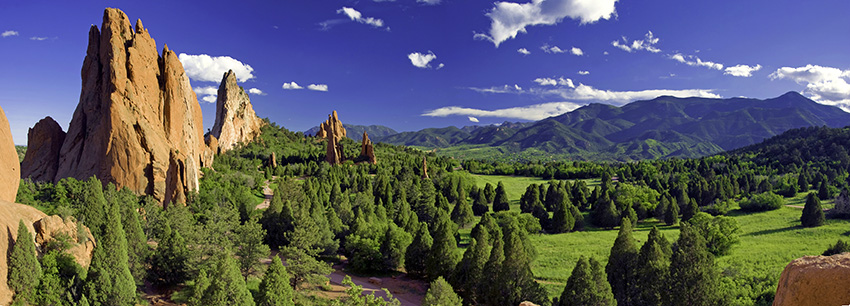Remembering the Value of Nature while Consumed by Crisis
Dr. Deserai Crow | School of Public Affairs Jun 23, 2020
As we all attempt to move back towards normalcy – but a better and more equitable version of normalcy – I remind myself that nature must play a central role in my family’s new normal. Hannah Collazo from Environment Colorado and I recently argued in the Aurora Sentinel that during the current COVID-19 crisis, we need our outdoor places more than ever. This is even more true as we face the overlapping complex challenges we now see clearly before us. As we re-open and rebuild, our health, our communities, and our economies require that we proceed with nature in mind.
Countless studies demonstrate that mental and physical health is better when we have access to clean outdoor places. Exercise, contemplation, social enjoyment, and stress relief are just some of the reasons all of us do better when we have access to outdoors. It is obvious that when we hike or bike or run outside that it’s good for our bodies and reducing stress. But the importance and health benefits of nature go far beyond the physical benefits. Early studies about COVID-19 incidences showed that exposure to pollution may play a factor in health outcomes and severity of the disease. Depression and anxiety – which are ever-present during crises – are also eased when we spend time outdoors. The absence of outdoor spaces can lead to behavioral and mental health challenges, particularly for kids. During this time of crisis when our kids are coping with so many changes and challenges, this is ever-more concerning.
Despite the many known benefits of access to clean, green, outdoor spaces, huge gaps persist. As with many facets of systemic racism and inequity, communities of color have significantly less access to healthy outdoor spaces than other Americans. Not only can this exacerbate health and mental health inequities, but when diseases like COVID-19 hit communities of color harder, the reasons are typically found in the existing health inequities that persist before and after a crisis like the current pandemic.
The novel coronavirus also sheds a critical light on human-nature relationships. As we seek economic development at the expense of nature and as we hasten climate change through numerous human activities, we push people closer into contact with nature and potential natural hazards. As I’ve argued here, contact with nature can be beneficial in so many ways, but this close contact can also put us at risk. Whether it means encroaching on wildfire-prone landscapes in the western U.S. or zoonotic diseases in China, as we tear down natural habitat we cause problems that we must be prepared for. Future pandemics and other crises exist in the areas humans want to develop. It might just be time for us to slow down instead of rushing headlong into resource development and rapid economic development.
As we all desperately hope to move towards some resumption of our social and economic lives, we need to remember these interconnected challenges. Nature benefits all of us in countless ways, but particularly our physical and mental health. And yet, not all Americans can share in these same benefits – gaps largely connected to race and class differences. When we re-open economies, we need to work to change this. Rarely do societies as complex as ours pause and take a rest. Even more rarely do we have opportunities to learn during such pauses. Much of my own work analyzes learning from crises and disasters and often arrives at pessimistic answers to humans’ tendency to learn and adapt. I hope that we listen to the brief quiet during this crisis – even though it is filled with fear and anxiety and loss – and find ways to work towards more equitable access to the myriad benefits that nature provides us. Not only do we need nature now more than ever, but we must ensure that all of us can share in those same benefits now and for generations to come.
Categories:
Public Management & Finance
Public Policy & Society
School of Public Affairs
|
Tags:
Deserai Crow
School of Public Affairs